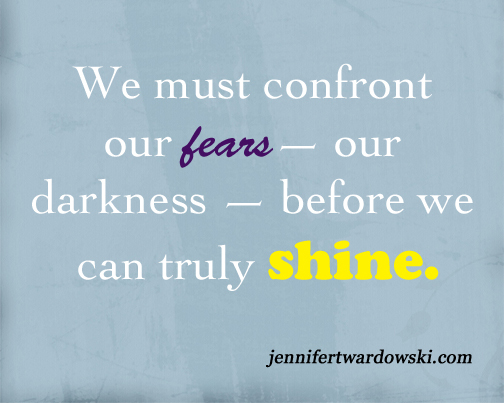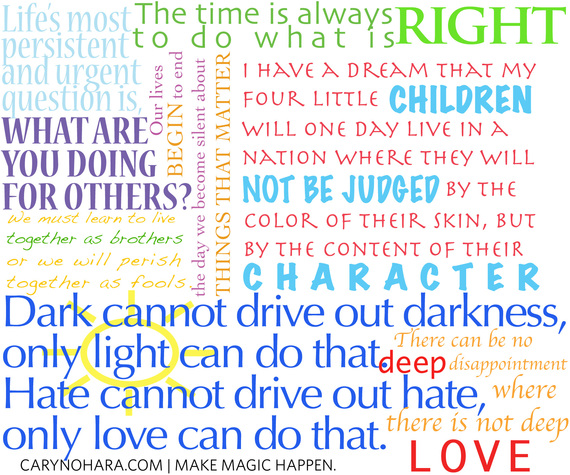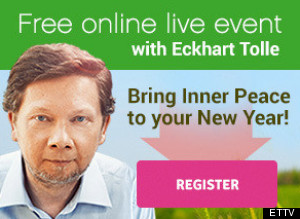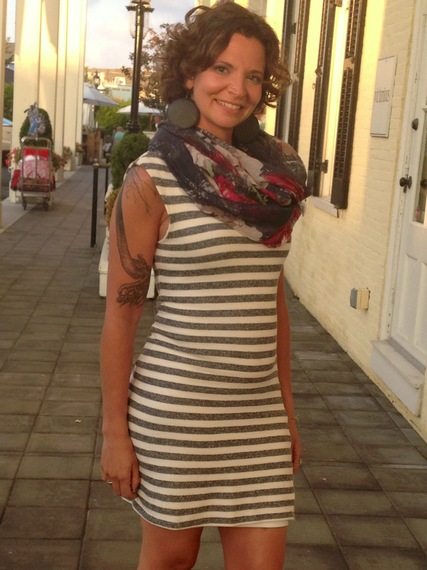Britta Hölzel is not your typical yoga teacher. Or your typical Ph.D. neuroscientist.
In recent years, during fellowships at Harvard Medical School and elsewhere, Hölzel has co-
authored a range of studies focused on the intersection of two great passions of her life, how meditation and yoga affect the brain.
Most notably, in 2011, she and her colleagues
found that people “who meditated for about 30 minutes a day for eight weeks had measurable changes in gray-matter density in parts of the brain associated with memory, sense of self, empathy and stress.”

Brain scans of the meditators showed "increased gray matter in the hippocampus, an area important for learning and memory" and "a reduction of gray matter in the amygdala, a region connected to anxiety and stress," the
New York Times reported. "A control group that did not practice meditation showed no such changes.”
The Huffington Post interviewed Dr. Hölzel for
Sophia, a project to collect life lessons from fascinating people. Currently on parental leave, she shared practical wisdom about happiness, relationships, her daily routines, how to get started with meditation, and the books she's found most influential. She also discussed findings from her latest research on mindfulness and the brain.
+++
Have you had any recent realizations about living a rewarding life?
I think I'm relearning many things over and over again, because it's so easy to lose all these lessons. Just these last days it has become clear again how important presence is to living a rewarding life, being aware of what's happening in the present moment and being mindful.
It's like, whoa, it makes such a big difference. It's so easy to go on with your daily routines -- especially now, with a baby -- having your routines of doing the dishes, the laundry, and all that stuff, and forgetting about being present to what's actually happening in your life.
It's so easy, really, to miss your own life. What I value are these brief moments when you wake up to the fact that you're actually living, that you're alive and healthy, and the fact that it is so easy to just enjoy it.
 Do you have any daily routines?
Do you have any daily routines?
I don't have a formal routine since my daughter was born. I did have a daily routine for many years, and I found it extremely helpful and important. It's what makes all the difference.
Starting the day off with a half-hour of meditation, of mindfulness meditation practice, that helps me to bring back these short moments into the day where you feel fully alive and where you appreciate that you're alive and appreciate what's happening to you.
Any other habits you find helpful?
Body posture is a healthy habit that I've come to appreciate through yoga practice. I think it's overlooked how important that is.
One of my colleagues here in Germany does this really interesting research on how body posture influences mood and how closely they're connected. He finds that, just with his analyses of how people walk, he can predict whether they are depressed or not. So the idea is that by influencing your body posture, you could also influence your moods and be less depressed, be happier by just walking upright, sitting upright and having your head in a balanced and erect position and moving in a smooth and relaxed way. I think that research is going to discover more of this mind-body connection.
Breath is also so important. Deep breathing is kind of obvious physiologically, but your brain needs oxygen. Your entire body needs oxygen. But it's so easy to miss the deep breaths and to breathe in a very shallow way. And I think that we can be much healthier and happier and sleep better by just monitoring the way we're breathing and the way we're sitting and walking.
What would you recommend for people who are interested in mindfulness meditation but aren’t sure where to start?
What is really good is the Mindfulness-Based Stress Reduction (MBSR) course that was developed by Jon Kabat-Zinn. It is taught all over the world. It's an eight-week course that teaches you the basics that get you started with the practice.
What benefits have you seen people gain from mindfulness practice?
It's surprising how much it can give to people. I love these little moments that people experience during the MBSR course, when they come back to class and say, "Last week I had this moment, this experience. I was just standing at the bus stop and I was realizing for the first time in my life how beautiful it is just to be. Just the fact that I don't have to always do something. How beautiful is it to stand there and just be?"
People can experience getting out of this constant mode of doing that we're typically in, where we're going down our to-do list. From morning to evening, we're busy thinking about what to do next and what's the most important thing to do next and how am I going to do the shopping, et cetera.
We're constantly postponing our life. That's a feeling that I have a lot. I go through the day thinking that I only need to get the next thing done and then I'll be happy. I've recently been in a supermarket, catching myself thinking, “Okay, let me just quickly rush through the supermarket and get my shopping done as quickly as possible, because then I'm going to be at home and then I'm going to be happy.”
I stopped myself in the supermarket and was like, “What am I doing?” I'm constantly postponing my happiness. I'm constantly postponing the joy of my life, where it's so easy to just do my shopping in happiness -- just doing happy shopping. It's not that everything needs to be rushed through.
We can do exactly the same thing that we're doing during a day, but doing it with a different feeling and a different attitude towards it. And it will make the day different, totally. This is what people report when they come back to class and have been practicing the mindfulness practices. They have these brief moments of realization of: Oh my God, this is life. It's happening. We always feel like it's going to be happening next, after we've done the one task that's left to do before happiness.
 Let me ask about some of your recent research. You and colleagues examined older experienced practitioners of yoga and meditation and found that these practices positively correlate with fluid intelligence. What is fluid intelligence?
Let me ask about some of your recent research. You and colleagues examined older experienced practitioners of yoga and meditation and found that these practices positively correlate with fluid intelligence. What is fluid intelligence?
We differentiate between fluid and crystallized intelligence. Crystallized intelligence is the knowledge that you have accumulated over your lifetime, the hard facts that you know about things, whereas fluid intelligence is the sort of intelligence that you need to do things in a creative and productive way -- reasoning, problem-solving.
While crystallized intelligence is something that gets bigger with age, because you learn more hard facts, your fluid intelligence declines with age. The processing speed of your brain is just not the same as you age. You just get slower with problem-solving.
The idea is that meditation and yoga might help and protect or maintain these sorts of fluid intelligence capabilities.
This is a preliminary study. It's not a longitudinal study, which you would really need to confirm that. I hope that future researchers will be doing that. You would need to test older people as they begin a meditation and yoga practice if you wanted to find out the causality of the practice on intelligence.
Another paper of yours from 2014 focused on ‘equanimity’ as a measurable outcome of meditation. Can you explain?
The paper said that equanimity is a variable that meditation researchers might want to consider more.
Equanimity is understood as part of the concept of mindfulness. Mindfulness is typically defined as a way of paying attention to experiences in the present moment in a way that is nonjudgmental and open to the experience. That's really equanimity.
Experiencing things equanimously means bringing an equal attention, an equal deep caring to whatever you're encountering, whether it's pleasant or unpleasant. People often mistake it to be similar to not caring. It's really exactly the opposite. It's a way of bringing deep care to whatever you're doing but not being attached to the outcome.
The paper suggests that we could tease meditation and equanimity apart even more and see what effect equanimity as a variable plays exactly in mediating the beneficial effects of mindfulness on well-being and on life in general.
This is what I think is most important to do in your work and career life -- doing everything you can with as much love and care as you can, while at the same time not being dependent on positive outcomes. I think this is really the core thing to keep in mind in terms of work and career.
 Have you discovered any lessons about building lasting relationships through your mindfulness work?
Have you discovered any lessons about building lasting relationships through your mindfulness work?
One thing that I have discovered only within the last year -- and it was the best discovery, I would say, of the last year -- is a type of dialogue that I've had with my partner. It's a German word, but what it means is something like a mindful dialogue that you have between the two of you.
It has been so powerful for us. It has really made a big, big difference to our relationship.
It's a formal practice where you set aside an hour and a half each week, on a regular day of the week, that you take just for talking. It sounds like not much time, but it's actually so much more than you usually take with your partner to sit down and talk.
There are rules, the way you talk with each other is in a very specific way. You're really listening openly and mindfully to what the other person has to say without interrupting. Each person just talks about himself or herself, openly and really from deep within, talking about what moves him or her during that time. How am I feeling? How am I feeling about the relationship or about life in general? The other person does not interrupt and does not contradict or say, “No, that's not true.”
The person who wrote it, Michael Lukas Moeller, is not alive anymore. It's a 10 or 20-year-old practice that he developed. I think something that's very similar to it is what they call the "
Insight Dialogue." That's a really interesting book too, by Gregory Kramer.
Have you changed your mind about any big issues in the course of your life?
I have changed my mind about goals and expectations. When I was younger, I was convinced that it's important to know what you want and that knowing what you want really leads to success. I've changed my mind about that quite a bit. I think knowing what you want can really also be very harmful when we are not able to let go in the presence of things that are not working out the way we want.
We can make our lives really difficult by having expectations. That's a big point in relationships, in a career or whatever. We are often making ourselves unhappy by attaching ourselves to a certain outcome. We think, “we must have that,” but we're missing a lot of other things that are happening on the way.
 What are some books that have had a profound impact on you?
What are some books that have had a profound impact on you?
There are so many. What I've used a lot for my work, and I really like it a lot, is Jon Kabat-Zinn's "
Full Catastrophe Living." That describes mindfulness practice in a very clear way and [makes it] easy to take up a practice yourself.
I really like a type of ancient Asian Indian philosophy that's called Advaita Vedanta. It's a teaching about non-duality, about self and selflessness. What it says is that you're not separate from the rest of your environment. We take ourselves to be these separate identities or personalities that go through life, doing our own little lives, and we often feel disconnected from the world, from the rest of humanity.
This teaching says that we're not. In our core essence, we're not separated from the rest, we're all connected. That's a teaching that has had a very big impact on my life and on my understanding of myself, and I think really on my happiness.
When we walk through the world with a feeling that we're not different, we're really connected, we're living in this really super-interconnected world where we all have influences on each other, that just makes us so much happier.
Is there any recent research that you weren’t involved with personally but that you find particularly fascinating?
Something that I cite a lot is a
study by Killingsworth and Gilbert from Harvard University, but it’s a few years old. Their research looked at mind-wandering and awareness of what's going on in the present moment. They did experience sampling, asking people, "Where is your mind right now?" and then looked at whether people are in the present moment or they're daydreaming, often thinking about the future or the past. Then at the same time, they looked at, how happy are you right now? What they found is that the more present people are to the present moment, the happier they are.
You’ve taken multiple trips to India to study yoga and meditation. What is different about how these are practiced in India that our readers might learn from?
It's very, very different. First of all, the yoga ashrams there don't dedicate a whole lot of time to the physical Asana practice
[i.e., the postures typically associated with yoga in the United States]. That is being practiced in some places, but it doesn't take up a lot of time.
What mostly takes up the time is doing selfless work. You work in the garden or you do dishes or prepare the food, or you’re helping people in the rural areas around the ashram. This is what a lot of the time and energy is dedicated to in the ashram. That's all being done with an internal attitude of moving beyond yourself, your personality or your ego, and letting go of those attachments and just doing things with presence and with the intention of letting go.
The physical practice can be really similar to what's being practiced in the West. But the meditation component is definitely much stronger in the ashrams in India. You'll always have something like a philosophy class or you'll hear talks about the ancient philosophies while you're staying in the ashrams.
Is there any scientific research that runs counter to what you have been finding? Anything that suggests that mindfulness is not as helpful for everyone?
Yes. We're experiencing what's very typical for a new research field, that findings are mostly positive because people are excited about mindfulness. A lot of the meditation researchers are also meditation practitioners themselves.
It's easy to find the things that are good when we look at it with this bias that we have. This is what's happening right now. And I don’t think this is going to hold up, because what we see is, as studies are being replicated, not all of the positive effects are being replicated. I think there is going to be more research that shows that it doesn't always have these positive effects. For some people it might just not be so positive.
Also, it's not so clear yet what parts of the brain are really being changed. With neuroscience it's so easy to find positive changes in the brain if you want to find them. That's a really big problem in neuroscience; you can really find anything you want to find.
What's needed now is really rigorous and methodically well-designed studies that very critically test and replicate the findings that we have right now. I think that's what is going to come in the next years.
But still, what you see is it does make huge difference in a lot of people's lives. I think that's also obvious. It's just not understood exactly how and to whom and when.
Transcription services by Tigerfish; now offering transcripts in two-hours guaranteed. Interview has been edited and condensed.
 Sophia is a project to collect life lessons from fascinating people. Learn more or sign up to receive lessons for living directly via Facebook or our email newsletter.
Sophia is a project to collect life lessons from fascinating people. Learn more or sign up to receive lessons for living directly via Facebook or our email newsletter.









 Brain scans of the meditators showed "increased gray matter in the hippocampus, an area important for learning and memory" and "a reduction of gray matter in the amygdala, a region connected to anxiety and stress," the New York Times
Brain scans of the meditators showed "increased gray matter in the hippocampus, an area important for learning and memory" and "a reduction of gray matter in the amygdala, a region connected to anxiety and stress," the New York Times 




